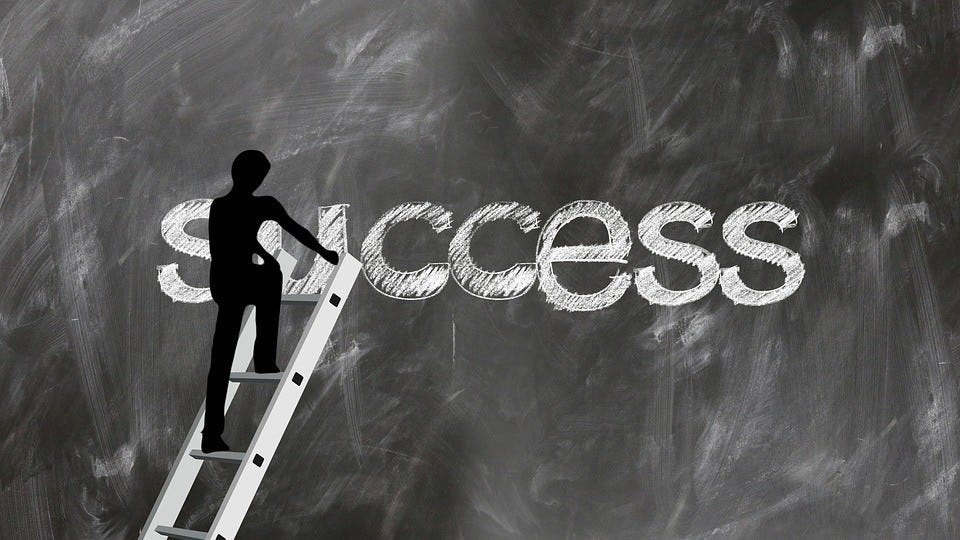Why do Child Prodigies Fail?
The curse of being gifted has a long tail.
Kim Ung Yong was the genius among child prodigies.
At 12 months old, he had mastered the Korean alphabet and 1,000 Chinese characters.
At 3 years of age, he was already solving differential equations and published a 247 page book containing essays, calligraphy, and illustrations in both English and German.
At 4 years of age, he astounded academics by scoring an astonishing 210 on an IQ test designed for seven-year-olds. This feat led him to obtain the world’s highest IQ by the Guinness Book of World Records.
At 5 years of age, he was fluent in five different languages – Korean, Japanese, English, German, and French, and started attending class at Hanyang University.
At 8 years of age, NASA recruited him.
This boy was literally the dream child for Asian parents - he represented what hitting the lottery jackpot would be for having a child: an impossibly smart son. Such was, and to some degree still is, the one-dimensional filter through which Asian parents measure contentment when it comes to their children - especially for sons.
So imagine the surprise Kim Ung Yong’s parents had when at the age of 16, he decided to quit NASA and basically book out of the red carpet that lay in front of him.
It wasn’t just his parents who were surprised. Society itself vilified him, and labelled him as a “failed genius.” In their eyes, he was not only a sorry soul but a wasteful one who threw away an incredibly rare opportunity because he simply wanted to live a “normal” life.
Sadly, Kim Ung Yong’s case is not an isolated one. In fact, more child prodigies don’t go on to change the world and live up to the impossible hype that they find themselves swimming in from such an early age.
In fact, why is that most of the people that we know of who changed the world weren’t child prodigies? Sure, they were smart, but they weren’t geniuses and to that point, what happened to all the geniuses?
You might be tempted to think that the reason has to do with the lack of development in social skills. Perhaps the child genius was too busy studying to be bothered with socializing and grew up without the ability to interact with people which as we know is a critical component to success. Maybe the distance in intellectual ability put them into an isolated place where they couldn’t mesh with their fellow peers, once again resulting in a detachment due to an inability to assimilate socially.
It turns out that this is not the case.
In fact, many of these child prodigies grow up and become successful people - even if they don’t change the world. They become experts in their fields, earning PhDs or climb up the ladder and become senior managers at corporations. They can hold conversations with people at cocktail parties if they choose to and are not the aloof individuals they are made out to be.
What tends to happen is that they become a victim of their achievements. As they begin to excel at such young ages, they place more and more expectations to achieve again and again, at higher and higher levels. This cycle continues into a dizzying spiral upwards. The more they achieve, the higher they go, and the higher the fall would be should they ever fail. At some point, they are perched so high that failure is simply not an option.
Achievements turn into bondage. They oblige one to higher achievements.
The propensity to take risk evaporates as there is too much to lose from even a single failure. The result is the crowding out of creativity - there is no room to take alternative paths. The straighter the path you take, the safer things get, and since they have the intellectual ability to brute force their way above the rest to further achievements, this is the only pathway to ultimate success that they are willing to take.
Practice makes perfect, but practice does not make new.
Sometimes, the demands to out-achieve the rest of the world on the crowded path that everybody is competing on becomes brutal. As was the case with Kim Ung Yong. He literally turned into a computer solving mathematical equations at NASA.
That is, until he embraced the fact that he was a human being, and finally took action to wake up, become alive, and start living his life according to his book and not someone else’s.
And for that, he is the opposite of a failure in my eyes - he is in fact a hero for taking action according to his own will, even if it meant going against everybody and being vilified.
We should all learn from his experience and be wary of falling into the achievement motivation trap. The moment we find ourselves feverishly pursuing achievement after achievement, we must ask ourselves if the means has usurped the end for if it has, we must jump off before it becomes too high and scary to make the leap.
➡️ Watch the accompanying YouTube video for this article here:



